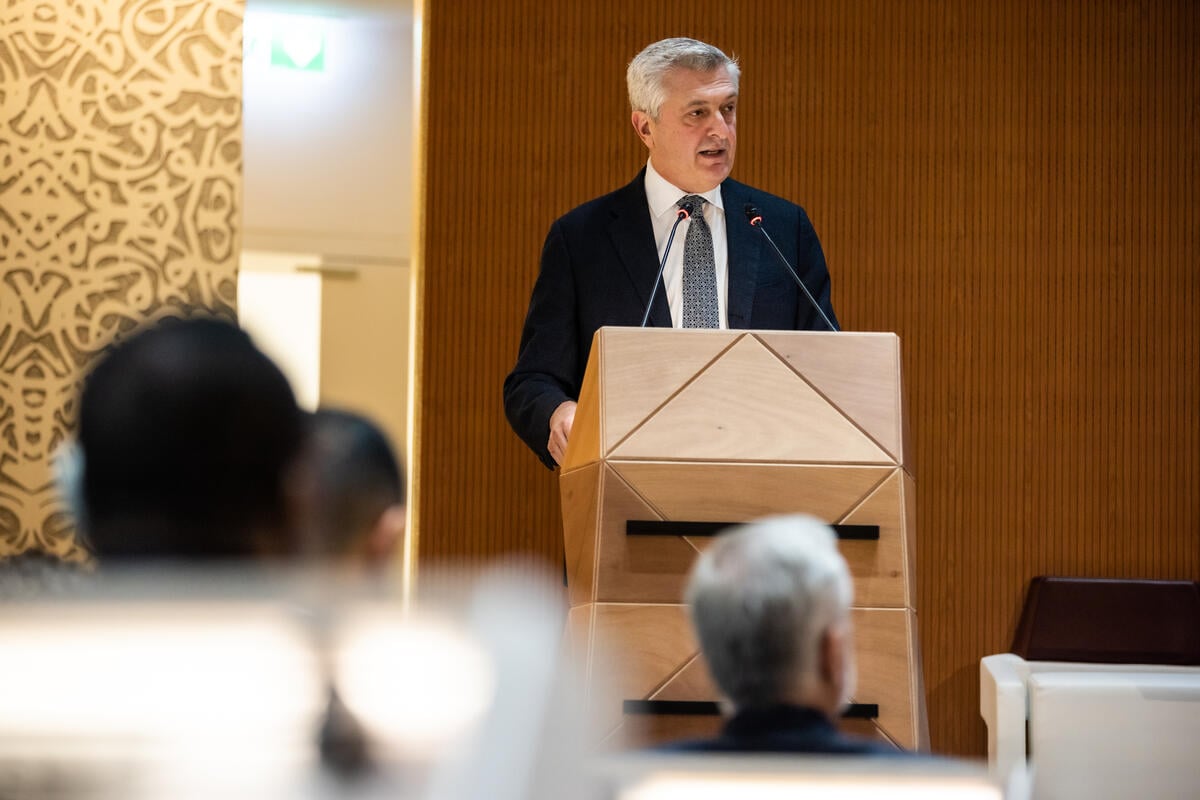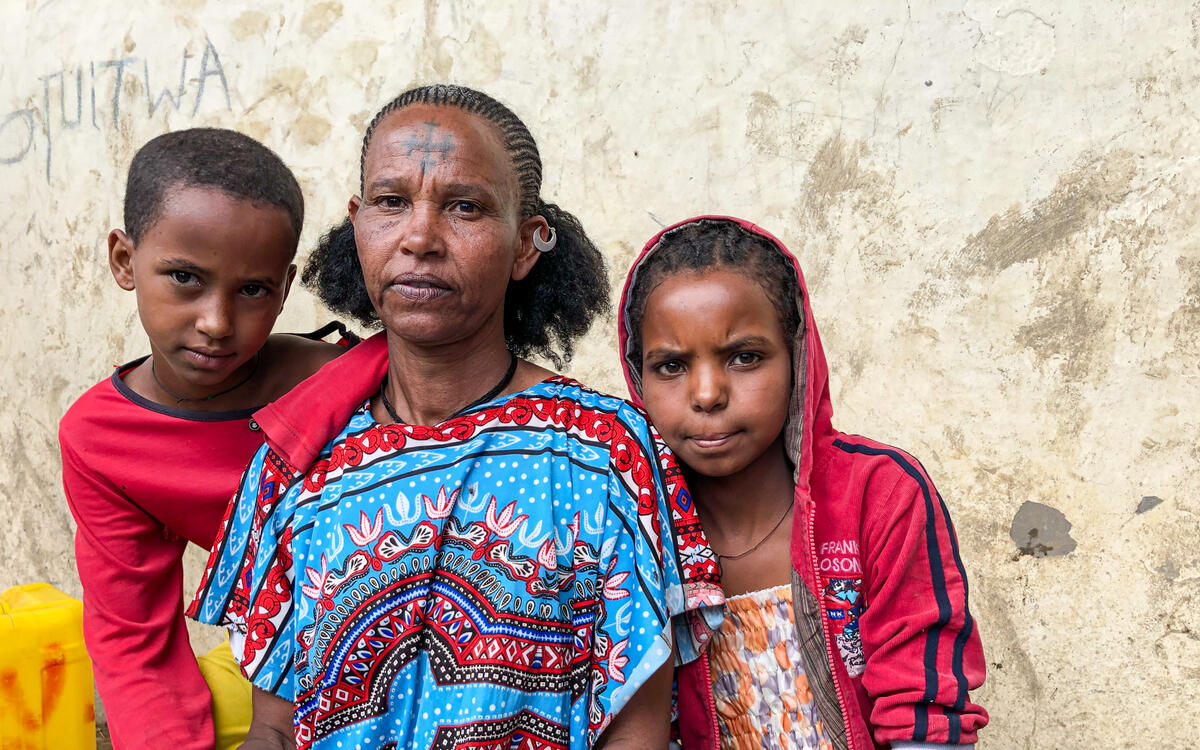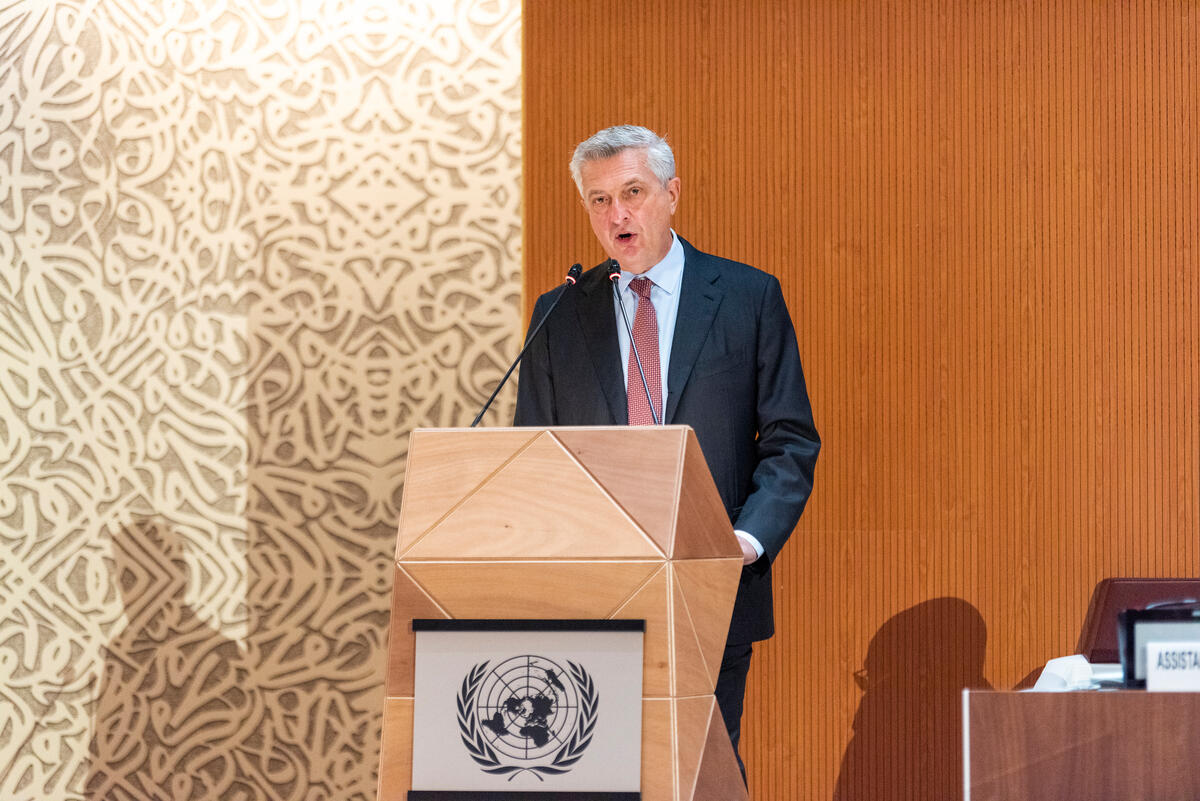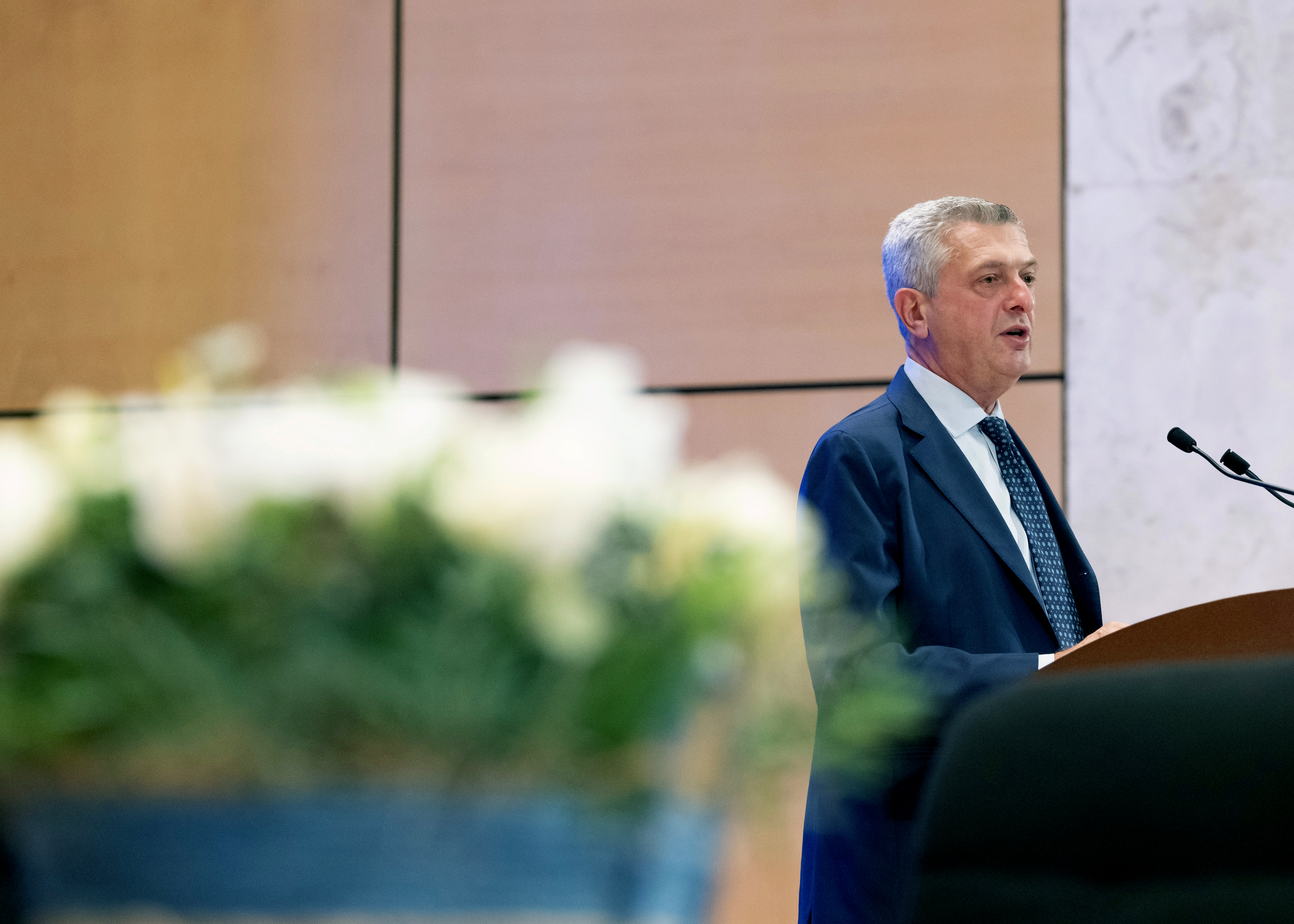Ogata addresses her final Executive Committee
Ogata addresses her final Executive Committee
The United Nations High Commissioner for Refugees, addressing the tough challenges of the future after ten years at the helm, warned today that the UN refugee agency will become "critically weakened" unless it receives urgently needed funding.
High Commissioner Sadako Ogata made the remarks in a speech to the 51st annual session of UNHCR's Executive Committee, a 57-nation advisory body which approves the agency's budget and determines the main thrust of its policy. The meeting, held in UNHCR's 50th year, was also addressed by UN Secretary General Kofi Annan, the first Secretary General to address UNHCR's advisory body.
Ogata thanked UNHCR's main donors for their support, listing the United States, Japan, the Nordic countries, the Netherlands and Switzerland as the agency's most consistent financial backers. But she said despite continued support by some nations, UNHCR has become an "under-funded organisation."
"When I go to the field, it pains me to see my colleagues unable to meet some of the basic needs of those they are out there to serve," she said. She mentioned several UNHCR operations from Rwanda and Tanzania to Afghanistan which have already been affected by funding shortages.
Ogata, who retires this year, led UNHCR during the 1990s, one of the most turbulent decades of the post World War II era, which brought democracy to many but which also saw a string of violent conflicts and large-scale refugee exoduses, from northern Iraq to the Balkans and Africa's Great Lakes region.
Looking back at her 10 years in office, Ogata said during the extremely complex crises of the 1990s humanitarians were often left to themselves. "We faced terrible ambiguities and dilemmas, frequently alone." She said.
Speaking of her legacy, Ogata also mentioned some successful resolutions of refugee crises. She spoke of the return of anti-apartheid refugees to South Africa, the return of civil war refugees to Mozambique and the conclusion of the 25-year refugee saga in Indochina, as well as Central America.
Looking at UNHCR's future, Ogata said the agency has to evolve and further modernise to meet the challenges of a constantly changing environment of humanitarian work. She said in addition to the need for UNHCR to strengthen its own ability to respond to crises quickly and efficiently, a number of larger issues must also be tackled such as security of refugee populated areas, the blurred line between migrants and refugees, the dilemmas of internal displacement, the aid gap during transition from war to peace and efforts to promote co-existence between divided communities.s
Ogata also spoke about the safety of humanitarian staff. The issue was brought to the fore of international attention last month when four UNHCR staff were murdered in two separate incidents in Atambua, West Timor and Macenta, Guinea.









